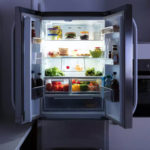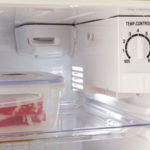Lemon is an indispensable ingredient in cooking. Typically, the juice is used for food preparation while the peel is discarded. However, if you’re aware of the surprising benefits of lemon peel, you’ll realize how wasteful it is to throw it away.
The Surprising Benefits of Lemon Peel
Here are some ways you can utilize lemon peel:
Enhancing Food Flavor
Lemon peel contains essential oils that impart a distinctive and pleasant aroma. You can finely chop or grate the peel, adding it to your dishes to enhance the flavor, garnish, or amplify the taste of desserts, cakes, and soups.
Natural Cleaning Agent
Lemon peel has natural acidic and oily properties, making it an excellent cleaner and deodorizer. You can use it to clean kitchen surfaces and other household items. It’s also effective in eliminating odors from your refrigerator and microwave by placing a piece of lemon peel inside.
Removing Burn Marks from Pots and Pans
Burn marks and stubborn stains on cookware can be a challenge for homemakers. To remove these stains, place a few pieces of lemon peel on the affected areas, add water, and bring it to a boil for 15 to 20 minutes. The boiled lemon water will loosen the burnt residue, making it easy to remove.
Finally, simply wash the pots and pans under the tap, and they’ll shine like new.

Lemon peels have many surprising uses in the kitchen. (Photo: Istock)
Natural Disinfectant
Lemon peel contains compounds that fight bacteria and fungi, making it a natural and effective disinfectant.
Method: Mix warm water with grated lemon peel to clean kitchen surfaces, eliminating bacteria and maintaining a hygienic cooking space. This method is safer and more environmentally friendly than using chemical disinfectants.
Food Preservation
Lemon peel can also be used to preserve food. The essential oils in the peel prevent oxidation, keeping fruits and vegetables fresh for longer. Simply place the lemon peel in a bag with the produce you want to keep fresh. This method works especially well for apples, bananas, and pears.
Recycling into Organic Fertilizer
Lemon peel is an excellent organic food source for making compost.
Chop up the lemon peel and mix it into the soil in your garden. The nutrients in the peel improve soil structure and provide nourishment for your plants, promoting their healthy growth.
According to VTC News
More Useful Advice for Homemakers (Part 2)
Have you heard of the surprisingly easy tips to make cooking and household chores simpler? White radish eliminates the acrid taste of salted meat, adding alum to raw shrimp helps soften it, and adding cold water when frying eggs can make them crispy – these are just a few of the tricks to make your life easier.
Is Refrigerated Leftovers Linked to an Increased Risk of Cancer?
Dr. Lam Van Man, Head of Research, Development and Technology Transfer Department of the Institute of Safety Food, has warned of the risk of food poisoning when reheating leftovers from the refrigerator. But what should we be aware of when it comes to the possibility of these leftovers causing cancer? Here, we explore what the experts have to say on the matter and offer some tips for safe eating.





































